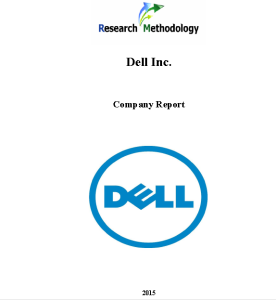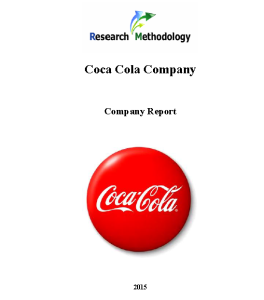Company Profiles & Analysis

Dell Inc. is a global computer technology company that manufactures and sells PC, tablets, workstations and displays. Dell practices “Direct Business Model” that involves selling products directly to customers without intermediaries. Developed by founder and current CEO Michel Dell, this business strategy has proved to be highly effective in terms of gaining significant cost advantage in competition. Founded in 1984 in Texas, USA, Dell has emerged into one of the leaders in the global marketplace. Currently, the company employs 108,000 people globally and its portfolio comprises award winning products and services. Dell servers have been acknowledged as a product of the year in 2014 by CRN Test Centre and the company has been praised as a leader in Gartner’s Magic Quadrant for Modular Servers . Dell became a private company, as per shareholder agreement reached on September 12, 2013 and the company was acquired by its founder, Chairman and CEO Michael Dell in partnership with a global technology investment firm Silver Lake Partners. According to the agreement, Dell shareholders were provided USD 13.75 per common share and the company shares were delisted from NASDAQ Stock Market in October 29, 2013. There are evidences that after becoming a private company Dell’s current business strategy is associated with making a transition from PC assembler and seller to software developer, a strategy that proved to be successful with another global computer brand IBM. This report contains application of SWOT, PESTEL, Porter’s Five Forces and Value-Chain analytical frameworks towards the case study of Dell Inc. The report also comprises analysis of Dell’s marketing strategy and company’s approach towards Corporate Social Responsibility (CSR). 1. Introduction 2. SWOT Analysis 2.1 Strengths 2.2 Weaknesses 2.3 Opportunities 2.4 Threats 3. PESTEL Analysis 3.1 Political Factors 3.2 Economic Factors 3.3 Social Factors 3.4 Technological Factors 3.5 Environmental Factors 3.6…

This report contains application of SWOT, PESTEL, Porter’s Five Forces and Value-Chain analytical frameworks towards the case study of Coca Cola Company. The report also comprises analysis of Coca Cola’s marketing strategy and company’s approach towards Corporate Social Responsibility (CSR). The world’s largest beverage company, The Coca Cola Company is owner or licenser of more than 500 non-alcoholic beverage brands. The company sells a wide range of beverages that include waters, enhanced waters, juices and juice drinks, ready-to-drink teas and coffees, and energy and sports drinks . Products belonging to Coca-Cola Company are sold in more than 200 countries around the globe since its incorporation in 1886. Incorporated in 1919, The Coca Cola Company offers well-known brands such as Coca-Cola, Fanta, Sprite, Minute Maid, Powerade, Del Valle, Schweppers, Aquariues and others. In addition to its core business of manufacturing and selling non-alcoholic drinks, Coca Cola Company is also engaged in some other affiliated businesses such as distribution of Monster Energy beverage drinks, products of DPSG brands and joint venture with Nestle S.A. to produce and distribute Nestea products in Europe, Canada and Australia. Coca Cola Company’s 2020 Vision is based on its mission that consists of three parts: a) to refresh the world, b) to inspire moments of optimism and happiness and c) to create value and make difference. Recently the company initiated a new marketing campaign ‘One Brand’ that aims to unite four different brands – Coca Cola, Diet Coke, Coca Cola Zero and Coca Cola Life under the umbrella of Coca Cola. TABLE OF CONTENTS 1. Introduction 2. SWOT Analysis 2.1 Strengths 2.2 Weaknesses 2.3 Opportunities 2.4 Threats 3. PESTEL Analysis 3.1 Political Factors 3.2 Economic Factors 3.3 Social Factors 3.4 Technological Factors 3.5 Environmental Factors 3.6 Legal Factors 4. Marketing Strategy 4.1 Advertising 4.2 Sales Promotion 4.3…
